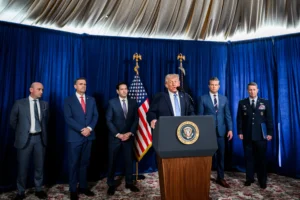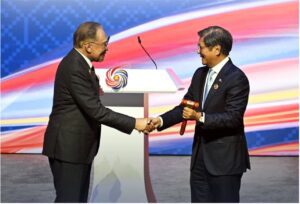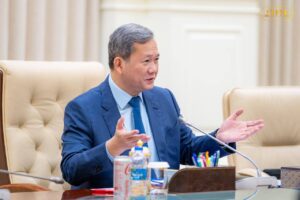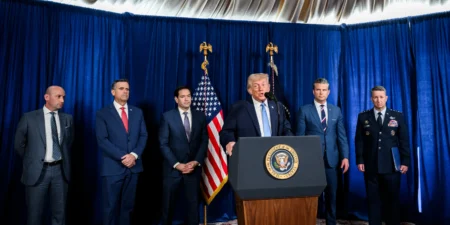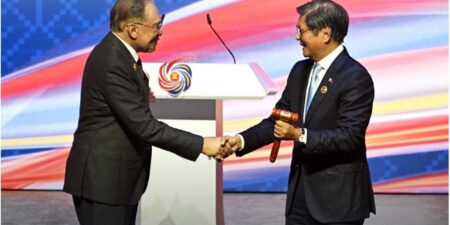
Trump’s Tariffs on Cars Expected To Hit Japan and Korea Hard

BGA Japan Managing Director Kiyoaki Aburaki and Korea Managing Director B.J. Kim, Ph.D., wrote a client update on the impacts of the Trump administration’s tariffs on cars.
Context
- U.S. President Donald Trump’s recent declaration about imposing 25 percent tariffs on cars, pickup trucks and their parts, effective April 3, is projected to have a major impact on the auto industry in Japan and Korea. These tariffs follow earlier Trump’s tariffs on steel and aluminum. The U.S. president is expected to announce global reciprocal tariffs that will likely also impact Japan and Korea on or around April 2 in retaliation for the tariffs, non-tariff barriers and other alleged unfair treatment against U.S. companies in their economies.
- In the end, U.S. carmakers could be hurt more by the tariffs than the Japanese and Korean manufacturers. When the auto tariffs take effect, automakers that rely heavily on imported parts particularly from Mexico and Canada could be hit hardest.
Significance
- Japanese automakers have not yet issued official statements following Trump’s 25 percent tariff announcement on non-U.S.-made automobiles beginning April 2, citing the need to carefully assess the situation. However, some media outlets reported Toyota executives saying the company will not immediately adjust its retail prices in response to external cost pressures like tariffs. Instead, Toyota is reportedly focusing on cost-reduction efforts, a strategy shared by other Japanese carmakers.
- One major Korean company tried get the United States to soften its focus on large tariffs on Korea by offering hefty investment packages. With Trump standing next to him at the White House March 25, Hyundai-Kia Motor’s Executive Chair Chung Euisun announced a $21 billion plan to invest in the United States through 2028 — marking the group’s largest U.S. investment to date. Chung denied his announcement was meant to address the U.S. tariffs. Observers, however, see his action in the continuing pattern of public attempts made earlier by the leaders of Japan’s Softbank and Taiwan’s Taiwan Semi-Conductor Manufacturing Company, which did not produce much of an immediate impact on Trump’s actions.
Implications
- A more significant concern for Japanese automakers will be tariffs on imported parts. However, the potential damage may be limited given that the local content ratio for Japanese-branded vehicles manufactured in the United States stands between 70 to 80 percent. Other manufacturers rely more heavily on imported parts.
- Acting President Han Duck-soo has said that the government is preparing countermeasures to trade tensions with the United States in consultation with private companies and their industry associations. Following the implementation of the 25 percent tariffs, the government is expected to provide details about its response. Han has served as Korea’s trade minister and ambassador to Washington. Experts see the ongoing Korean presidential impeachment proceedings having negligible impact on the quality of policy responses Korea will announce to counter the tariffs.
We will continue to keep you updated on developments in the Indo-Pacific as they occur. If you have any comments or questions, please contact BGA Japan Managing Director Kiyoaki Aburaki at kaburaki@bowergroupasia.com or BGA Korea Managing Director B.J. Kim, Ph.D., at bjkim@bowergroupasia.com.
Best regards,
BGA Indo-Pacific Team

Kiyoaki Aburaki
Managing Director
Kiyo understands the Japanese business community inside and out from his three decades working for Japan’s most powerful business organization, Keidanren. He covers international trade and investment, defense and aerospace, information technology, entrepreneurship, deregulation and data privacy policy. He also played a leading role in developing and implementing political strategies for the private sector. Kiyo has led Keidanren’s strategic international initiatives since 2013, and most recently headed up the federation’s international engagement. He worked closely with former Prime Minister Yasuo Fukuda to establish Japan’s Track 1.5 dialogues with the United States and China. The dialogues produced important results by strengthening ... Read More
×


















